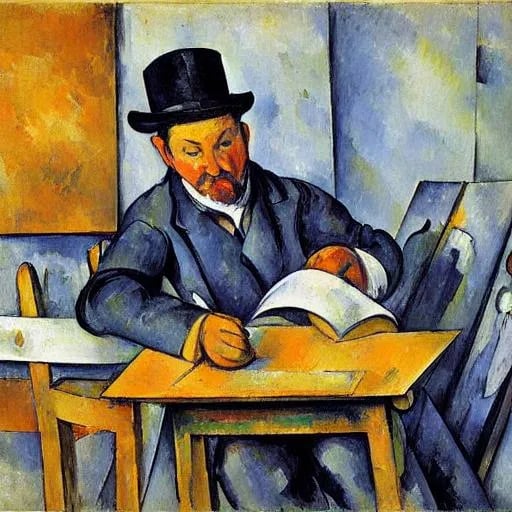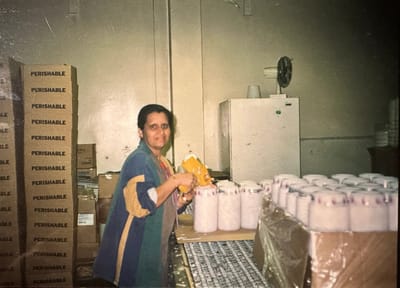The Grief of Being Complicit

I spend a lot of time thinking about systems and our social infrastructure, largely because I work within public education, but also because I have always been interested in machines, and how small parts can come together to produce movement. The parts have to be aligned with some precision to produce something of quality, yet there are no perfect outcomes. Perfection is impossible, but imperfection is also often imperceptible.
We’re always vacillating between these in education, I feel. Between "as good as it’s going to get” and “it can’t get any better than this.” There is both optimism and surrender, and gratitude and despair wrapped up in every circumstance and endeavor. It’s hard to parse for outsiders, and exhausting for insiders. Even when we are trying our best, we are somehow complicit in the injustices of the system.
I read the book Range by David Epstein recently, and this sentence caught my eye:
“Overspecialization can lead to collective tragedy even when every individual separately takes the most reasonable course of action.”
There are many wonderful people working in education making good decisions however they can that are in the best interest of young people. A good example of this is the initiative taken everyday by decent, hardworking teachers in the classroom. What we call best first instruction.
But these efforts are so often thwarted by the misguided mandates of those who have ascended power, guided by their newfound distance from teaching and the inevitable jockeying that comes with their new position. People in power in education are there for a reason. They were aspirational beyond the classroom, and not necessarily the best teachers. While many wanted to become “transformational change” people, many of them simply became bored and disenchanted with teaching and sought whatever change was available to them. (I’m not condemning these folks — I got bored in the classroom after two years.)
Educators don’t have many choices outside of the classrooms, which is why I always recommend for aspiring teachers to get terminal masters degrees and nothing strictly public ed focused. Private sector people can come into education if they want (case in point: me), but public sector people get stuck. The longer you stay, the more stuck you become, and any future outside of education recedes into the zone of impossibility in your mind. It’s a shame really, because there are some very smart, talented, and hardworking people here that could make a dent in other places. Like oil and water though, the education and private sector don’t often mix.
Anyway, these administrators, when they become distant from the day-to-day business of the classroom for whatever reason, have a tendency to repaint all of the fire hydrants a new color every few years, thinking they’re enacting some critical reform. One day we’re writing off standardized tests, another day we’re going full hog on them. And this constant state of flux thwarts those educator-practitioners quietly doing the most important work on the ground.

If you zoom out, you see everybody is taking what they believe is the most best, most reasonable course of action, yet collective tragedy ensues. I think about this every. damn. day. I am lodged in it, well-intentioned and complicit. A complex state laden with guilt, grief, and my favorite — rage. Thankfully as a consultant, I have a thousand ways out. This is why no matter what juicy carrot of a public sector job gets dangled in front of me, I resist, because, while my frock occasionally gets snagged in a muddy wheel, I am no spoke.
Why am I talking about all of this? Because Substack is full of Nazis. I got into this because I wanted to write, but now I’m complicit in yet another collective tragedy. I was messaging with my friend who also writes on Substack: It’s a quiet writer’s worst nightmare to go from creative to complicit through their art, overnight, without even realizing it. It happens in education, and also Substack apparently.
Mentoring and Giving Advice
If you’re going to mentor somebody, give them the advice you want to give them, not the advice you think you should give them.
Mentoring and being mentored are a huge part of my life. My father is my penultimate mentor, and he actively discussed mentorship with me when I was growing up. He often elucidated mature topics like this and, in hindsight, what excellent parenting.
He encouraged me to look for mentors in my teachers and I’m proud to say that some of these folks advise me to this day. We’ve grown together as people, and there is a rich tapestry of knowing between us. Being aware of such relationships, and being set on this path early has been so beneficial for my career and attitude about life.
A few months ago, I found myself in hot water with some higher ups at the school district I contract with because of something I said that was entirely justified. I advocated for myself and threw some people under the Truth Bus. Apparently that’s frowned upon by people in positions of authority. The Fat Cats, if you will.

One of these cats also happens to be a friend and, in case he ever reads this, I want to be clear that he is not part of the problem. We need people like him to ascend power structures and activate change. But on the night this incident happened, we talked on the phone and he reluctantly told me to “slow my roll.” It stung, and for a moment I felt betrayed, not by what had happened, but by his capitulation.
I sat with his words, stewing in shame and disenchantment, and let a few weeks roll by. Then we spoke again and he messaged me afterward: Don’t apologize. Be fiery.
There we go. That was the advice he wanted to give me. Not the advice he felt he should give me to protect me from the machinery and politics of the system. Good advice is long, not short term. It’s courageous, not careful. It’s also rooted in justice. Give that advice, and then nurture and advocate for real change.
If you see a disparity in the advice you want to give versus what you can say, then you have systemic work to do. Mentoring can be a great source for signals in this way, and a broader call to action.
Good mentoring is also a two-way relationship, not a top-down one. As a mentee, I always ask myself what I’m offering this person whose life is enriched with more years of experience, and whose time is worth more in hard dollars. People who engage with mentees have an overriding interest in growth and development, so ask your mentors explicitly what you could help them think through. This is not an exercise in ego, it’s an exercise in gratitude. Good mentoring is a mutual investment.
No spam, no sharing to third party. Only you and me.






